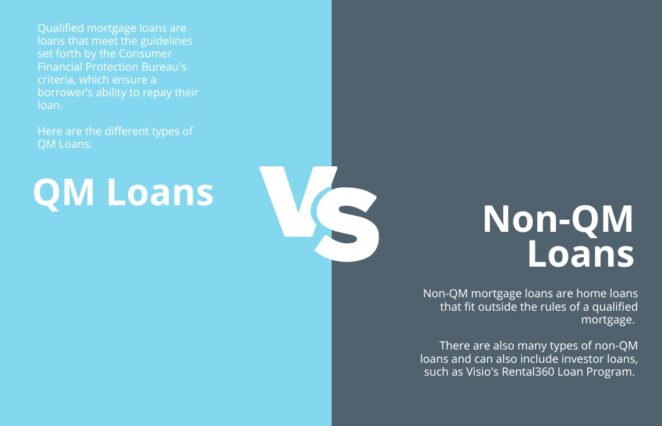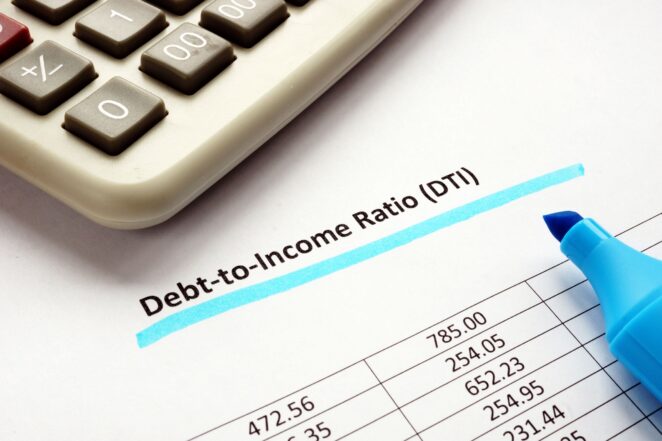In the dynamically evolving arena of mortgage lending, Non-QM (Non-Qualified Mortgage) loans have surfaced as a distinctive and adaptable financing solution.
These loans, diverging from the conventional norms of lending, serve as a boon for a plethora of individuals such as self-employed professionals, real estate investors, or those experiencing unique financial scenarios.
Non-QM loans offer a beacon of hope and open up avenues for homeownership that might remain unattainable through traditional lending channels due to rigid qualifications and requirements.
The realm of Non-QM loans is intricate but full of potential, capable of catering to varied financial needs and circumstances, thus providing a spectrum of opportunities for those who find themselves navigating the complex terrains of modern-day mortgage.
Whether one has irregular income, unconventional assets, or a unique credit history, these loans usher in possibilities, making homeownership a tangible reality for many.
In this extensive and comprehensive guide, we shall explore the multifaceted world of Non-QM loans, unraveling their myriad benefits, diverse eligibility criteria, nuanced application processes, and the unparalleled opportunities they bring forth for borrowers in pursuit of customized mortgage solutions.
We aim to elucidate the potentials and intricacies of Non-QM loans, aiding prospective borrowers in making informed and beneficial decisions in their quest for optimal mortgage solutions.
By shedding light on the mechanics and nuances of these loans, this guide aspires to be a crucial resource for those looking to navigate the myriad possibilities in the mortgage landscape, thereby unlocking opportunities and facilitating paths to fulfilling homeownership experiences.
Understanding Non-QM Loans

Non-QM loans stand as a distinctive category of mortgage loans that diverge from the conventional criteria established by government-sponsored entities such as Fannie Mae or Freddie Mac.
Representing a paradigm shift in mortgage financing, these loans venture outside the conventional “qualified mortgage” framework, enabling a more inclusive and adaptive lending environment.
These types of loans are conceived to accommodate a wider array of financial circumstances, allowing for more flexible underwriting guidelines compared to their qualified counterparts.
This flexibility is instrumental in addressing the diverse needs and unique financial landscapes of potential borrowers who may not fit into the traditional lending mold.
By traversing beyond the conventional boundaries of mortgage lending, Non-QM loans extend an alternative route for individuals seeking tailored mortgage solutions.
They are designed to embrace variances in income, credit history, and other financial attributes, thus providing an essential gateway for those who encounter limitations and constraints in the standard mortgage landscape.
In essence, Non-QM loans are not merely financial instruments; they are transformative avenues enabling accessibility and inclusivity in homeownership, fostering financial empowerment and facilitating the realization of homeownership dreams for a broader spectrum of society.
The Benefits of Non-QM Loans
Why Choose Non-QM Financing?
Non-QM loans offer several key advantages:
Flexibility: Non-QM loans are designed to accommodate borrowers with unique financial profiles, such as self-employed individuals or those with complex income structures.
Expanded Borrower Eligibility: These loans are more inclusive, making homeownership attainable for a wider range of borrowers.
Tailored Solutions: Non-QM loans can be customized to fit the specific needs and financial situations of borrowers.
Investment Opportunities: Real estate investors can benefit from Non-QM loans to finance property acquisitions and renovations.
Types of Non-QM Loans

Customizing Your Non-QM Loan
Non-QM loans come in various forms to address different borrower scenarios:
Bank Statement Loans: Ideal for self-employed individuals, these loans use bank statements to verify income instead of traditional tax documents.
Asset Depletion Loans: These loans consider a borrower’s assets, such as savings and investments, to determine eligibility and loan terms.
Interest-Only Loans: Borrowers can opt for interest-only payments for a specified period, reducing initial monthly expenses.
Jumbo Loans: Non-QM jumbo loans provide financing for high-value properties that exceed conforming loan limits.
Eligibility for Non-QM Loans
To qualify for Non-QM loans, the eligibility criteria might differ slightly among lenders; however, there are generally a few standard prerequisites that borrowers must meet.
The process is designed to evaluate various aspects of a borrower’s financial status to ensure their ability to repay the loan, even if the approach is more lenient compared to traditional loans.
Below are the typical requirements:
Credit History
Even though Non-QM loans are notably more flexible and accommodating, maintaining a reasonable or decent credit history is usually imperative.
Lenders may delve into your credit reports to assess your reliability and past repayment behaviors, weighing any financial mishaps against responsible credit use.
Income Documentation
Borrowers are obliged to furnish adequate income documentation to verify consistent earnings.
This requirement holds even if the proof of income diverges from the conventional standards, allowing for variations in income types and sources, thus accommodating a broader range of applicants.
Asset Verification
Certain Non-QM loans may necessitate the verification of assets.
This could encompass a review of savings, investment accounts, or other tangible assets, offering a more well-rounded view of a borrower’s financial standing and further validating their ability to honor loan commitments.
Debt-to-Income Ratio

Lenders meticulously assess your debt-to-income ratio to ascertain your capability to manage and meet monthly payments in juxtaposition with your income and existing financial obligations.
This evaluation is crucial in determining the risk levels associated with extending a Non-QM loan to a prospective borrower, ensuring a balanced and sustainable debt management plan.
In conclusion, meeting the eligibility criteria for Non-QM loans involves a comprehensive review of one’s financial landscape, with each element playing a pivotal role in the overall assessment.
While these loans are inherently more adaptive and inclusive, maintaining financial prudence and responsibility is key to unlocking the doors to this innovative and flexible financing option.
Navigating the Non-QM Loan Application Process
Steps to Securing Non-QM Financing
Securing a Non-QM loan involves several key steps:
Pre-Approval: Get pre-approved for a Non-QM loan to understand your budget and strengthen your position when house hunting.
Find a Non-QM Lender: Choose a lender experienced in Non-QM loans, who can guide you through the application process.
Complete the Application: Submit your loan application, providing necessary financial documents and information.
Underwriting and Approval: The lender will review your application and financial documentation before granting approval.
Closing: Once approved, you’ll complete the closing process, signing documents and officially becoming a homeowner.
Conclusion

Non-QM loans offer a valuable financing alternative for borrowers who don’t fit the conventional mortgage mold.
Whether you’re self-employed, have complex income sources, or seek a tailored mortgage solution, they can open doors to homeownership and real estate investment opportunities.
Interested in non QM loans? Click here for more information and resources to explore how Non-QM financing can help you achieve your homeownership or investment goals.




